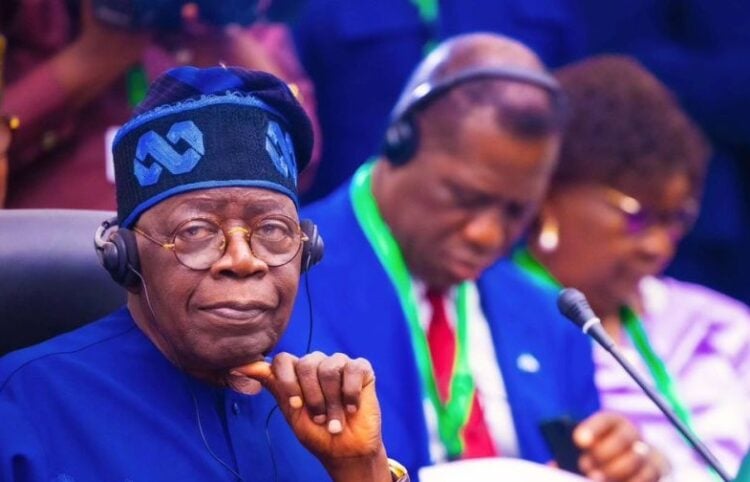In a bold economic declaration, President Bola Tinubu has unveiled the Renewed Hope Nigeria First Policy, a procurement directive compelling all federal ministries, departments, and agencies (MDAs) to prioritise Nigerian-made goods and services in public spending.
Modelled after an economic agenda similar to Donald Trump’s “America First,” this policy signals a shift toward placing Nigerians at the centre of the country’s life. Its promise is significant, but its success hinges squarely on implementation, a factor Nigeria has often struggled with for decades.
One of the challenges of governance in Nigeria has been public officials’ failure, or unwillingness, to match words with action regarding policy implementation. There are many beautifully articulated ideas, policies and legislations in the nation’s statute books that could turn around Nigeria’s fortunes. Still, there is hardly any serious consequence for failing to effectively carry out a public service. The Nigeria
First policy aligns with the objectives of another crucial economic legislation—the Nigerian Oil and Gas Industry Content Development Act, 2010 (commonly known as the Local Content Act), which seeks to promote the patronage of Nigerian products and services in the oil and gas sector.
The Nigeria First policy and the Local Content Act complement vision and purpose. Together, they form a twin-pillar strategy to foster industrial development, job creation, technological advancement, and economic independence.
A shared economic objective is at the heart of both initiatives: reducing Nigeria’s overdependence on foreign goods and services. For decades, Nigeria’s economy has suffered under the weight of an import-dependent system that drains foreign exchange and limits the growth of indigenous industries.
The Local Content Act addresses this in the oil and gas sector by mandating the prioritisation of Nigerian products and services. Similarly, the Nigeria First policy seeks to institutionalise this approach across all public procurement sectors, requiring ministries, departments and agencies (MDAs) to obtain waivers before engaging foreign vendors for domestically available goods and services.
The expected impact of these policies, if enforced, is immense. According to the Manufacturers Association of Nigeria (MAN), effective implementation of the Nigeria First policy could boost Nigeria’s Gross Domestic Product (GDP) by up to 56 per cent and reduce unemployment by 37 per cent. This mirrors the Local Content Act’s success in increasing indigenous participation in oil and gas operations, empowering local firms, and building capacity in a previously foreign-dominated industry. Both policies strive to achieve the same national ambition—economic sovereignty through self-reliance and industrial expansion.
Both policies aim to stimulate job creation and support indigenous enterprises. The Local Content Act has birthed a generation of indigenous oil companies by granting them preferential access to licenses and contracts. It mandates that Nigerian companies with requisite capacity be considered first for projects, creating a pathway for local entrepreneurship. The Nigeria First policy seeks the same effect across multiple sectors—from construction, to information communication technology (ICT), to manufacturing—providing a broader platform for Nigerian businesses to grow and employ more citizens.
A key economic advantage of these policies lies in their potential to curb capital flight and conserve foreign exchange. Nigeria can reduce the billions of dollarslost annually to imports by keeping procurement local and investing in domestic capacity. The economic value retained through local content application extends beyond contracts; it fosters a multiplier effect of more tax revenue, higher consumer spending, and increased reinvestment into the economy.
However, advantages alone do not make a policy successful. The failure of Executive Order 5 under President Buhari, which was also aimed at promoting local content, is a stark reminder that policies amount to mere paperwork without enforcement. The Nigeria First policy risks the same fate unless matched with institutional commitment, legal backing, and strong leadership.
Indeed, implementation must begin at the very top. As critics, analysts, and some trade organisations have rightly pointed out, the political class led by President Tinubu himself and other top officials should begin to patronise and promote Nigerian-made products, services, and expertise. They must shed their unbridled appetite for everything foreign – including foreign vehicles, healthcare, meeting venues, clothing, food and wines – and adopt local alternatives where available. Otherwise, the policy will derail under the weight of hypocrisy.
As a newspaper, for this initiative to succeed, federal and state governments must go beyond rhetoric. All MDAs should immediately align their 2025 procurement plans with the policy, while the Bureau of Public Procurement (BPP) must develop transparent, accountable waiver processes to prevent abuse.
The Local Content Act offers a template for structured compliance. It empowers the Nigerian Content Development and Monitoring Board (NCDMB) to supervise project plans, enforce obligations, and sanction non-compliant operators. A similar institutional mechanism must be integrated into the Nigeria First policy’s implementation structure.
Like the Local Content Act, the Nigeria First policy prioritises Nigerian interests, capabilities, and enterprises in economic development. If earnestly implemented, these policies could be the foundation of a new economic era in which job creation, industrial growth, and national pride replace dependency, stagnation, and underdevelopment.
But ultimately, its success or failure is hinged on rigorous implementation. Can the present crop of leaders muster the necessary patriotism and political will to apply Nigeria First policies in their dealings?
The government must also be ready to whip naysayers into line by punishing defaulters in line with its threat. Using a few erring officials to set an example will send a strong message that the government would not brook any affront to this policy.










